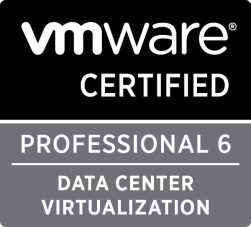Introduction to the vSphere Client 6.5
Introduction to the vSphere Client 6.5
This video is an introduction to some new features in the vSphere Client 6.5
Introduction to the vSphere Client 6.5
This video is an introduction to some new features in the vSphere Client 6.5
I had an engineer visit me the other day asking if there was an automated way to get the current version of VMtools running for a set of virtual machines, and in this case, it was for a particular customer running in our vCenter. I said there most certainly was using PowerCLI.
Depending on the size of the environment, the first option here may be sufficient, although it can be an “expensive” query as I’ve noticed it takes longer to return results. Using PowerCLI, you can connect to the desired vCenter and run the following one-liner to get return output on the console. Here I was looking for a specific customer in vCloud Director, so in the vCenter I located the customers folder containing the VMs. Replace the ‘foldername’ inside the asterisks with the desired folder of VMs. This command would also work in a normal vCenter as well.
Get-Folder -name *foldername* | get-vm | get-vmguest | select VMName, ToolsVersion | FT -autosize
Example output:

You can see that this example that folder has a mix of virtual machines running, some not (no ToolsVersion value returned), and has a mix of VMtools versions running.
What if you just wanted a list of all virtual machines in the vCenter, the whole jungle?
Get-Datacenter -Name "datacentername" | get-vm | get-vmguest | select VMName, ToolsVersion | FT -autosize
In either case, if you want to redirect output to a CSV add the following to the end of the line
| export-csv -path "\path\to\file\filename.csv" -NoTypeInformation -UseCulture
Example:
Get-Folder -name *foldername* | get-vm | get-vmguest | select VMName, ToolsVersion | export-csv -path "\path\to\file\filename.csv" -NoTypeInformation -UseCulture
Another method/example of getting the tools version, and probably the fastest is using ‘Get-view’. A much longer string of command-lets, but this would be the ideal method for large environments if a quick return of data was needed, lets say for a nightly script that was least impactful to the vCenter.
Get-Folder -name *foldername* | Get-VM | % { get-view $_.id } | select name, @{Name=“ToolsVersion”; Expression={$_.config.tools.toolsversion}}, @{ Name=“ToolStatus”; Expression={$_.Guest.ToolsVersionStatus}}
Example Output:

If you are after a list of all virtual machines running in the vCenter, a command similar to this can be used:
Get-VM | % { get-view $_.id } | select name, @{Name=“ToolsVersion”; Expression={$_.config.tools.toolsversion}}, @{ Name=“ToolStatus”; Expression={$_.Guest.ToolsVersionStatus}}
VMware has put together a nice introductory blog on using get-view HERE
Just like last time, if you want to redirect output to a CSV file just take the following on to the end of the line for either method ie specific folder or entire vCenter:
| export-csv -path "\path\to\file\filename.csv" -NoTypeInformation -UseCulture

I do apologies for being MIA these past couple of weeks. Anyone who has taken the VCP exam knows, it can be a brutal test to study for. I thought it best to keep my head down, and study hard so I can pass the VCP6-DCV exam on the first go around.
As I wait for VMware Education to finalize my records, I will be readying new material to share with my fellow virtualization geeks in the coming weeks ahead.
All the Best,
Cory B.
You must be logged in to post a comment.